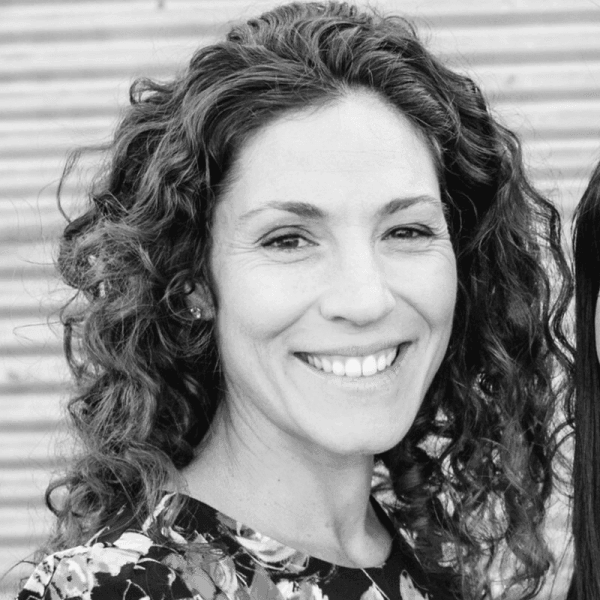For decades, clinical professionals aimed to practice cultural competency. That is, they adopted behavior, attitudes, and policies to work effectively across cultures. While this is important in our diverse world to honor issues of rapport, treatment success, and equity, Tervalon and Murray-Garcia (1998) discuss how competency implies mastery. Mastery is unattainable when applied to culture, especially if that culture differs from our own.
This perception of competency limits learning as it implies a sense of completion. This is problematic when working with a diverse population. Understanding of a culture is never mastered. So, where do we go from here? Enter the term: Cultural Humility.
Cultural humility came on the scene in the late 1990’s and applied to physicians’ work with culturally diverse patients and then spread to other helping professions over the last several decades. Cultural humility debunks the false perception that one can become an “expert” on each person’s culture with whom we work. Instead, Masters et al (2019) summarize Drs. Tervalon and Murray-Garcia’s definition as cultural humility as:
“a life-long commitment to self-evaluation and self-critique in an effort to address power imbalances and to advocate for others. The practice of cultural humility helps mitigate implicit bias, promotes empathy, and aids the provider in acknowledging and respecting patients’ individuality. The universality of cultural humility principles puts emphasis on the provider’s need to connect instead of being an expert on the patient’s race, culture, or ethnicity.”
Diversity exists in many forms in our world including race/ethnicity, gender, religion, socioeconomic status, sexual orientation and more, and the chances of an exact match in culture between a clinician and client is not reasonable given the incredible range of variables. However, that should not preclude us from striving to address the inequity that currently exists in the delivery of care. Davis et al. (2016) found that microaggressions (intentional or unintentional indignities that communicate hostility or insult to a person or group with a harmful psychological impact) committed by a therapist resulted in those therapists being rated less culturally humble, causing a rupture in the therapeutic relationship.
Similarly, Owen et al. (2015) found that clients who felt their therapists missed opportunities to discuss cultural experiences reported worse therapy outcomes and those who rated their therapist as culturally humble reported improved therapy outcomes. The importance of cultural humility in medical appointments and counseling relationships is established, but what does being culturally humble look like in other relationships such as parent education and training?
At Rethink, we work with parents throughout the United States and around the globe. Participating employers provide these parents (their employees) with free and equal access to Rethink’s video-based lessons to demonstrate how to teach a variety of skills, on-demand webinars, printable materials, and other resources. Many families, however, prefer to speak with a professional who specializes in teaching new skills and addressing challenging behaviors (i.e., a graduate-level, board certified behavior analyst [BCBA]) for personalized support. These consultations afford us the opportunity to work individually with families, giving them what they need. Moreover, these consultations are opportunities to practice our cultural humility. Each family presents with a unique familial structure that requires consideration by the BCBA.
BCBA Balancing Professional Recommendations With Family Goals
One example of cultural humility during parent training is reflected in how a BCBA (we will refer to her as a “consultant”) addresses her own agenda of what skills a child should learn vs. what the family’s goals are:
Scenario
A consultant meets a family of a 9-year old boy and she quickly learns that his mother is doing “what seems to be everything” for him- dressing him, cleaning up after him, making him snacks upon request, etc. The consultant thinks she is being helpful by brainstorming ways to help the mother teach her son independence skills and suggests they start teaching basic activities of daily living like dressing. However, in this family’s culture, it is quite common for the mother to complete these tasks for her son and she says she “wants to make his life easy and happy.” She does not see this as an area in need of change, compared to the consultant, who is looking at this situation from the lens of her own culture and values (other examples of potential cultural differences include making eye contact, co-sleeping, “acceptable” behavior, mealtime practices, and social skills expectations).
Culturally Humble Alternative
While the consultant may be an expert on teaching new skills or reducing challenging behaviors, the family is an expert on their child, culture, and their values. The consultant should be inquisitive about what brought the family to explore Rethink’s supports, saying, “I’m really looking forward to learning more from you about what brought you to our program. Would you like to share with me what you’re interested in working on together?” She must also elevate them in the relationship to dispel any power imbalance and encourage them to become equal partners. From this point forward, the family can state what they would like to learn based on what is important to them. The consultant remains both a learner and a resource.
My Own Self-Reflection
For myself as a clinician, I can recall early in my career, times where I judged a family for not following through on behavior protocols or skill building programs I created for them, and for not being what I felt was “invested.” It was only after critical self-reflection that I realized my own biases and attitudes, and how that impacted my relationship with these families. I wonder if I recommended something that wasn’t in line with the family’s values, but they did not want to disagree with me because I was an “expert” and I hadn’t adequately addressed that inherent power imbalance. I came into each meeting feeling as though I needed to be the expert and have every answer because why else would they ask for my help? It was only after I started to elevate parents as experts too, asking questions and encouraging them to tell me when I was wrong, did we start to have a more collaborative and effective relationship.
I have been fortunate to consult for years within schools and homes from my hometown of Los Angeles to native reservations in New Mexico, Detroit, the islands and interior Alaska, the Bronx, NY, etc. Now I work with parents all over the world. While I’ve seen how humans are far more similar than different, approaches to parenting differ significantly. I cannot detach from my own culture, values, and experiences so practicing cultural humility is a conscious decision that I make during every interaction with parents paired with a post-interaction self-critique with an eye towards improvement for my next interaction. I prioritize being culturally humble to ensure empathy, respect, and regard for the people with whom I’m collaborating.
Where Do We Go From Here?
In addition to welcoming a diverse group of consultants, parent training programs should not just talk about valuing cultural humility but rather engage in behavior that reflects those values such as:
- Offering training and professional development on cultural humility in the form of professional reading, mentorship, membership to equity and diversity special interest groups, and attending conferences
- Encouraging parents to voice concerns about microaggressions or discomfort during interactions with consultants (with a clear and established channel) and humbly take action to honor each concern that is raised
- Adding specific questions about cultural humility on parent surveys for critical, objective feedback (e.g., one question Rethink asks parents: My behavior expert was respectful and considerate of my cultural background, and was open to my perspective when giving suggestions/strategies [with 0 being not at all and 10 being very much]).
- Conducting ongoing quality checks (i.e., sit in on consultations between consultants and parents with prior, parental consent) and include cultural humility items on feedback/performance rating scales
- Encouraging completion of online assessments to uncover implicit biases
- Creating coaching tools to directly measure cultural humility (Masters et al., 2019)
- Establishing critical, self-reflection and self-management as ongoing, professional improvement goals (Wright, 2019).
While it might sound counterintuitive for the “expert” to be a learner in a consultative relationship, think for a moment of the connectedness and trust that could be established when each member of the relationship is empowered. While the efficacy of parent training is predicated on a multitude of factors, prioritizing culturally humble behavior in the relationship is a conscious and empathetic way to set us up for success.
If you’re looking to learn more about RethinkCare’s approach to supporting working parents and their families, request a demo today.
References
Centers for Disease Control and Prevention. (2020, August 17). Cultural competence in health and human services. https://npin.cdc.gov/pages/cultural-competence
Davis, D.E., DeBlaere, C., Brubaker, K., Owen, J., Jordan, T.A., II, Hook, J.N., & Van Tongeren, D.R. (2016). Microaggressions and perceptions of cultural humility in counseling. Journal of Counseling & Development, 94,483-493.
Harvard University. Project Implicit. https://implicit.harvard.edu/implicit/.
Masters, C., Robinson, D., Faulkner, S., Patterson, E., McIlraith, T., & Ansari, A. (2019). Addressing biases in patient care with the 5Rs of cultural humility, a clinician coaching tool. Journal of General Internal Medicine, 34(4), 627-630.
Owen, J., Tao, K. W., Drinane, J. M., Hook, J., Davis, D. E., & Kune, N. F. (2016). Client perceptions of therapists’ multicultural orientation: Cultural (missed) opportunities and cultural humility. Professional Psychology: Research and Practice, 47(1), 30–37.
Tervalon, M., & Murray-Garcia, J. (1998). Cultural humility versus cultural competence: A critical distinction in defining physician training outcomes in multicultural education. Journal of Health Care for the Poor and Underserved, 9, 117–125.
Wright, P. I. (2019). Cultural humility in the practice of applied behavior analysis. Behavior Analysis in Practice, 12, 805-809.











